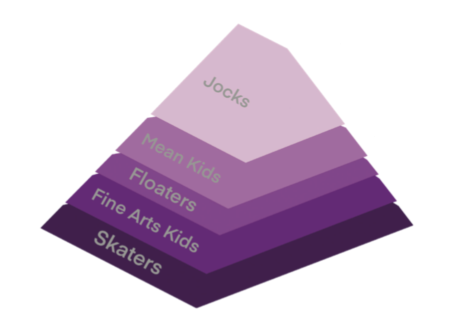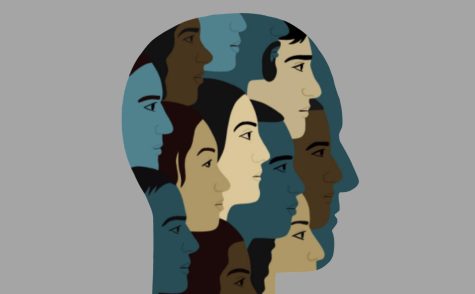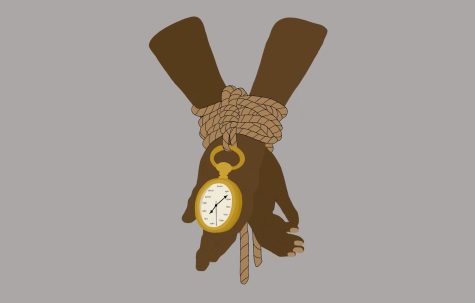Staff Editorial: The problem with popularity
The idea of social hierarchy, although universal, is almost always applied to high school. Films like “Mean Girls” display this concept to an extreme and unrealistic degree, solidifying high schoolers as the ultimate example of social hierarchy and the toxicity it creates.
Despite its over exaggeration in the media, social hierarchy is still a very present and influential aspect of the high school experience. Although many schools have tried to distance themselves from this narrative in an attempt to create a more inclusive environment for students, many of these stereotypes are still applicable to us. From seniors making classmates give up their spots at sporting events because they are “better” to being forced to sit alone because no one from your friend group is in your class, this toxicity is still present at Northwest.
The truth of the matter is: we forced this system upon ourselves. Thus, we are the only ones who are able to deconstruct it. In order to do this, we have to step back and ask ourselves why we give social hierarchy so much control over our lives.

Social hierarchy has a strong influence on friendships. Relationships that go against the rules of this system are oftentimes discouraged because they disrupt the flow of popularity and status in our student body. Having friendships outside of your designated group is completely normal; it should not be something your friend group is upset about or threatened by. At the end of the day, you should surround yourself with people who make you happy, regardless of the social status those friendships come with.
Having tight-knit friendships during adolescence is a crucial part of forming relationships later in life. According to a 2020 study in “The Post-Grad Survival Guide,” individuals with close friendships as teens are less likely to experience social anxiety and depression as adults. Interestingly, the study found that people who are more popular in high school show less social competence and are more prone to criminal behavior and substance abuse problems.
Popularity’s importance peaks in high school; your relationships with people should be determined by who you like and get along with. Social hierarchy will always be present, but the good news is, the rewards for being at the top of the social ladder will not.
Remember that friendships are not permanent. People change and can outgrow relationships, so focusing on making yourself happy will benefit you much more in the long run than trying to appease your friend group to maintain your social eminence.
Your social status in high school does not have to be a preview of your future. Despite how things may seem now, prioritizing your popularity will do nothing but further dissociate you from your peers. Nothing is more beneficial for relationships than being yourself. When all is said and done, being a good and genuine person is worth more than a front row seat at a basketball game.

Liz LaHood is a senior and the Online Editor of “The Express” and BVNWnews. This is her second year in the Online Editor position and third year on staff, previously serving as a writer. Outside of newspaper, Liz is a member of the NAHS Board, in addition to being involved in NHS, Quill & Scroll and MUSE. In her free time, she enjoys listening to music, reading, spending time with friends and watching movies, her favorites including “Alice in Wonderland” and “The Batman.” Liz is thrilled to return to the role of Online Editor and hopes to further elevate the high quality work put out by the staff.






